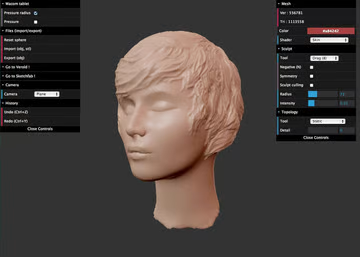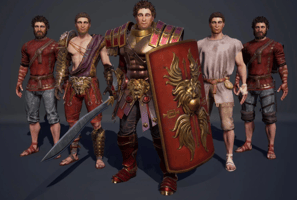3D character artists are responsible for creating realistic and visually appealing digital avatars...
What is the evidence that suggests studying the arts can increase creativity and imagination?
For centuries, it has been believed that studying the arts can help to increase creativity and imagination. The idea of using art as a platform for honing thinking skills has been around for some time, and there is now a strong body of evidence to suggest that looking at art can help to develop 'thinking dispositions'.
Psychologist David Perkins1 argues that for these skills to transfer to other contexts, teachers must explicitly show students how the principles of thinking in the arts can be applied in other domains.
What "thinking dispositions" can be cultivated by looking at art?
This highlights the importance of arts education, which should involve open-ended inquiry, creative problem finding, and creative problem solving (Perkins, 2003). The arts make an ideal platform for honing thinking skills, as they give us the ability to focus on a physical object, check our argument at any time, keep us engaged, and inspire us to make meaningful connections.
The concept that studying the arts can increase creativity and imagination has been a part of our culture for some time. The idea is that looking at art requires thinking and can be used to cultivate "thinking dispositions" such as curiosity, open-mindedness, and an openness to new ideas. In addition, the arts make an ideal platform for honing thinking skills, as they give us the ability to focus on a physical object, check our argument at any time, keep us engaged, and inspire us to make meaningful connections.
How can the arts be used to hone thinking skills?
There is evidence to suggest that studying the arts can increase creativity and imagination. Arts education should involve open-ended inquiry, creative problem finding, and creative problem solving. Psychologist David Perkins suggests that looking at art requires thinking and can be used to cultivate "thinking dispositions" such as curiosity, open-mindedness, and an openness to new ideas. The arts make an ideal platform for honing thinking skills, as they give us the ability to focus on a physical object, check our argument at any time, keep us engaged, and inspire us to make meaningful connections. However, Perkins indicates that for these skills to transfer to other contexts, teachers must explicitly show students how the principles of thinking in the arts are applicable to other domains.
Studing art can increse your creativity and imagination
In conclusion, studying the arts can have a positive impact on one’s creativity and imagination, and is an effective way to hone thinking skills. Arts education should involve open-ended inquiry, creative problem finding, and creative problem solving. Psychologist David Perkins suggests that looking at art requires thinking and can be used to cultivate "thinking dispositions" such as curiosity, open-mindedness, and an openness to new ideas. Finally, for these skills to transfer to other contexts, teachers must explicitly show students how the principles of thinking in the arts are applicable to other domains. Arts education is an invaluable tool that can help to shape the minds of students, preparing them for a successful future.
1. David Perkins is an American educational theorist, psychologist and author. He is most well-known for his work on the development of learning and intelligence, and his theories of generative learning, instructional design, and the educational value of play. He is currently a professor at Harvard University and director of the Harvard Project Zero. Perkins was born in Minneapolis in 1936. He received his bachelor's degree from Harvard University in 1958, and his PhD in psychology from Stanford University in 1965. After completing his PhD, he went on to teach at the University of Michigan and the University of California, San Diego.
In 1971, Perkins founded the Harvard Project Zero, a research group dedicated to exploring the role of the arts in learning. This group has since grown to include scholars from around the world. Perkins has written several books, such as The Intelligent Eye, Smart Schools, and Outsmarting IQ, which have been influential in the field of education. Perkins has also been involved in numerous educational reform efforts, including work with the National Science Foundation and the Carnegie Corporation. He was a major contributor to the development of the National Science Education Standards.
In addition, Perkins has also served on the editorial boards of several educational journals, including Theory Into Practice and Educational Researcher. Perkins has received numerous awards and honors, including two honorary degrees and the American Psychological Association's Award for Distinguished Contributions to Education and Training in Psychology. He has been a leader in the field of education, and his work has been influential in the development of educational theory and practice.




